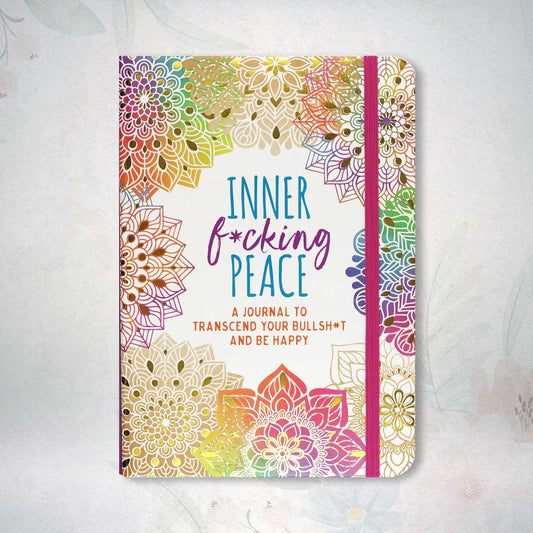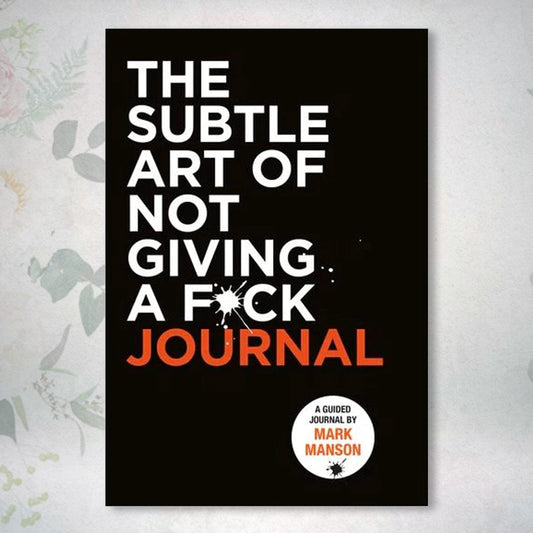
How To Journal to Support Sobriety
Share
Journaling Supports Healing
Why does journaling work so well? Experts suggest that writing in a journal feels like a safe environment where you can tell the truth without shame (Jonas 2018). This, in turn, helps you to face and record trauma and difficult memories from your past. You dig deeper and feel the pain. When that happens, Dr. Jonas says, "remarkable healing follows." Documenting your thoughts also produces a vivid picture of your patterns, and a way out appears. In other words, deeply-accessed recognition of your traumas enables their release.
Make It A Regular Event
Journaling works best when it is consistent. Building good habits, in general, is a large part of recovery. If you are not known for your self-discipline, you may want to develop the skill set to build good habits consciously. Basic psychology tells us that when you want to build a good habit, you first need to identify the new behavior you're looking for. Be specific. Write it down! (Yes, it helps!) Once you've identified your specific, time-based goal, say, 'To make a minimum one-page entry four times a week in my journal for the next month,' you then keep regular track of your entries per week and acknowledge their completion.
If you do not complete the first week successfully, modify your goal to a number and length of entries you know you can make. Revise your goal until it's reachable. Start with small goals and build up the number and page lengths in small increments. (Experience teaches you to start with a manageable goal because if your initial goal is too ambitious, it's discouraging and self-defeating.) Set a REACHABLE goal, and track your daily behavior regularly.
Experience tells us there are specific strategies to consider using as you build a journal-writing (or any) habit. First, ask for support from a sober friend or sponsor. Tell somebody what you're trying to do and ask them if you may report your progress to them as you go. This gives you ACCOUNTABILITY – having someone to report to. Another trick is to write your goal on a whiteboard or your mirror – post it somewhere you will see it regularly – and to mark your progress with weekly gold stars or a marker on your weekly calendar that identifies that specific progress is being made. Self-report rewards like stars or building an internal feedback loop (habitually giving yourself 'attaboys or attagirls' in the mirror, for example) helps you remain aware of the small successful steps you're taking towards your goal. This underscores your desire to change and enhances your self-esteem.
Each time an incremental goal has been met, REWARD yourself. Make a list of several small pleasures not related to others or to substances, and let yourself enjoy some small, special moment just for reaching a goal – read a magazine quietly for a few minutes, throw hoops with your buddies, rent a film you've wanted to see and take the time to watch it through. You want to find small things you enjoy and ONLY do them after the goal(s) are met. Reinforcement of the new behavior sets it into place.
Keep going until your "big picture" goal – the one you wrote down and posted to you, remember it --is reached. Set your next mini-goal, raising the number of days and length of entries as you see fit until you've established a regular journal-writing habit that suits you. Repeat the process for as long as it takes: set incremental goals, get support, regularly perform and track the new behavior, and reward the behavior in increments as they're accomplished. Keep in mind that as few as three regular one-page entries per week will usually enable the benefits discussed here.
Pen-To-Paper Vs Computer
From the early days of Alcoholics Anonymous, there has been widespread agreement about how helpful the regular practice of keeping a hand-written recovery journal can be. Personal journal writing has long been considered to be a safe-feeling, personal way to record private thoughts and experiences.
With the advent of the personal computer, however, common practice gradually switched from writing by hand to word-processing everything that used to be written out, including personal journal writing. Keeping a private journal online by word-processing your entries on a phone or laptop has strong appeal for several reasons. First, word processing is faster. It often seems like the flow of ideas is easier to catch and put down if you're an ordinary or fast typist. Also, taking notes and making personal journal entries online is convenient. Your phone is usually at-the-ready. Some even discover the convenience of dictating their thoughts in voice memo form is easier done than hand-writing.
Whatever technology you use, it often seems easier than writing by hand. It's convenient, as well, to save word-processed files and keep entries organized by date. Many find the ease and conveniences of word processing very appealing. It is faster, more convenient, and more accessible. And if keeping a journal online is the only way you're going to get the job done, then by all means, keep a computer file with your journal entries safely recorded and filed. But before you decide to do all your writing online, you might want to consider the following scientific evidence that details the health benefits of writing your journal by hand, by setting pen to paper, as the Big Book clearly instructs us to.
Writing things down by hand has been proven to be a more powerful way to get strong feelings and nagging memories out and help you to process them than writing online. Many studies over the past decade have found that journaling by hand has strong positive effects on the writer's physical and psychological well-being. (Deutsch 2017). Many studies suggest brain-friendly benefits to writing out your journal entries. Over time, scientists believe that writing by hand may better connect you with your words, which increases your focus on their meanings and gives rise to a direct experience of their emotional impact. This direct emotional experience, in turn, allows you to understand the experiences you're recording and to learn from them.
Additionally, a recent review of the science of journaling identifies the following physiological benefits (21 Journaling Prompts 2021):
- Reducing stress
- Improving immunity functioning
- Lowering blood pressure
- Enhancing mental focus
- Healing faster and more thoroughly
This list of measurable physiological benefits is impressive. The theory supporting these results is that hand-writing your journal entries allows in-depth physiological access to traumatic memories that may then be released. Stress alleviation, lowered blood pressure and other signs of increased health are good reason to go the extra mile to write out your entries by hand. The physiological benefits suggest that hand-writing accesses more parts of the brain, including lighting up links to the so-called "writing circuit" in the brain. (Deutsch 2017). It also has been found to lower the markers of inflammation measurably, a sign of the reduction of physical pain. When you hand-write journals regularly, it can not only reduce physical discomfort; it significantly lowers the physical and emotional markers of depression. Hand-writing journal entries help control symptoms like anxiety and improve your mood by helping you prioritize your problems, fears, and concerns. It also boosts your sense of having a strong spiritual connection.
Journaling by hand is such a powerful healer. Many recommend it even though it takes a little more work. You may end up digging deeper into a memory or experience and gaining new insight that enables its release. That, in a nutshell, is what enables more profound and long-lasting healing. It may take a little more effort, but it produces results worth working for!
Journal Prompts That Work
An important aspect of making real progress with your journal writing is recognizing that just spewing out feelings on paper is NOT as likely to be as healing as using a series of tried-and-true journaling prompts designed to help you dig deeply and tell the truth to yourself. It may sound funny, but many addicts and alcoholics are surprised to learn how much of their inner dialogue is designed to rationalize and excuse bad habits and feelings of self-pity and recrimination. The issue is that they're only half-conscious, and writing to heal is the solution. Instead, look to the experts to help you decide on the prompts. Spilling feelings out is fine, but it will not help you as much as taking conscious inventories and using writing-to-heal prompts.
The internet is full of journaling prompts, including several designed specifically for those in recovery. For example, prompts that support recovery (granitemountainbhc.com; silvermist.com; findrecovery.com) might sound like these well-phrased questions:
- Reflect on the progress you've made from your sober date to the present. What's changed? What's the same?
- Look up the word 'recovery' and write down a definition you like, re-wording it as you like. Then explain what recovery means to you.
- Identify ten things you've learned about yourself so far in recovery.
- What do you feel about your recovery today?
- What scares you the most in recovery?
You may also use specific journaling prompts for doing step work, such as:
- Step One: what is your definition of "powerless" and "unmanageable," and how do you feel about assigning these words to your life? What in your life is unmanageable today?
- Step Two: what's "insanity" look like to your way of thinking? Find a dictionary definition and write about how it fits or does not fit your mental state. Then redefine 'insanity' given these reflections. What would being "restored to sanity" look like in your life today?
- Step Three: Write a description of a power greater than yourself, whatever power you choose. Describe in detail YOUR PERSONAL VIEW of God or a Higher Power or a power greater than yourself today? What does it look like? Where does it reside? How do you find or connect with it?
You may want to reflect on your new ways of feeling about things by asking questions like these:
- How did your younger self deal with worry and how has that changed?
- Write about your self-care routine? What do you do and what does it help you care for?
- Why is self-care important for addiction recovery?
- What is a manageable goal you want to accomplish in the next year?
- Who has a life you admire, and why?
- What does your dream life look like?
The Basics Of Journalling
Writing out your feelings by hand or on a computer, if you prefer, helps you to build and maintain a meaningful sobriety. Remember that writing things out helps you to put things in perspective. Emotions can feel very "big" and overwhelming. Writing them out by hand (or on a computer works as well) helps you put them in perspective. What feels like a huge, unmanageable resentment can build up unconsciously over time, especially if it's unattended and allowed to fester. Writing out the feelings and describing them objectively (being careful not to stay too long in the mucky reasons you feel justified) but just naming them and describing where they happen in your body will help you to make them more manageable and less intense. We do not write to explain ourselves to ourselves or justify our feelings or actions. We write to feel better. We write to explore, inquire, be curious about what has happened, accept it and learn from it, and understand what and how to change what needs changing in ourselves.
Writing in a journal gives you perspective. Over time, you'll see yourself in a new light, which can help you develop self-compassion. The early days of your sobriety can be fraught with peril, real and imagined. Writing things out and sharing the insights you obtain from this writing yields hope and health; perhaps you'll even get a strong sense of how far you've come. It also points out the way forward and can encourage you to continue because you can see how far you still have to go.
In conclusion, writing things down by hand or by any means you choose can make a meaningful difference in a recovering person's life. Beware of trying to be "perfect" and just get started. A recovery journal records your emotions today, your feelings about being in recovery, an understanding of your triggers, and your strategies for moving ahead. The wisest among us know to be gentle and kind with ourselves and to just keep going. Writing about things helps us see the road ahead with clarity and take the next indicated step.
Works Cited
The Big Book of Alcoholics Anonymous, 4th Edition, New York. First Printing, 2001. Book.
Deutsch, L. "Memory Catcher," Psychology Today. Oct. 2, 2017. psychologytoday.com. Web. Accessed Jan. 23, 2023.
"Healing Power of Journaling." November 1, 2019. Lovingrootsproject.com. Web Blogpost. Accessed Jan. 28, 2023.
Jonas, W. M.D. "How Healing Works," Psychology Today. Nov. 15, 2018. Psychologytoday.com. Web. Accessed Jan 23, 2023.
Mooney, A. MD, Dold, C. and Eisenberg, H. The Recovery Book. 2014. therecoverybook.com. Web. Accessed Jan 23, 2023.
Penmaker, James. Writing to Heal: A Guided Journal for Recovering From Trauma & Emotional Upheaval. 2014. Book.
Price, R. NewYorkTimes.com Sunday Edition. January 15, 2023. Web.
"Prompts to Use in Addiction Recovery." Addiction Treatment. 2020. Granitemountainbhc.com. Web. Accessed Jan. 23, 2023.
21 Journaling Prompts. March 17, 2021. Gritandvirtue.com. Web. Accessed January 28, 2023.






